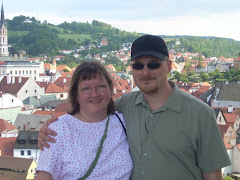I'll say again. This is my own opinion based on my experiences and learning. I don't have a degree in a related field. See your health care provider for proper diagnosis.
O.K. here it is:
An Obsessive behavior is an avoidance behavior. The behavior does not bring pleasure or satisfaction to the individual. It is not done to get or achieve. Instead Obsessive behaviors are done to avoid some typically unrelated thing or feeling. An example is the person who washes their hands over and over. They feel compelled to do it constantly. It doesn't help them feel clean, but by doing it they are able to (for example) avoid their feelings of fear and inability. The young girl takes 5 baths a day. She uses harsh soaps, and just can't get rid of that feeling of being filthy. If she could only feel clean. Is it because she feels dirty or is it because her uncle sexually abused between her ages of 8 and 12? He told her it was her fault. The abuse stopped because he died of a heart attack. I just made those stories as examples. They are extreme, but exemplify what I believe to be the nature of behaviors that can accurately be classified as OCD.
I think of OCD is a mental illness.
I think the Aspie or anyone in the Autism Spectrum (Classic Autism, PDD NOS, etc.) engages in repetitive behaviors for two reasons:
- To compensate for neural dysfunction
- To compensate for over or under stimulation.
Needing to touch or physically experience certain things helps them attain a sense of where they are in relation to their world. These movements can help them feel grounded instead of feeling as if they don't quite exist in the physical world or aren't sure what they are in relation to the physical space around them.
Secondly, the person in the Autism Spectrum may have certain behaviors that help them cope with the world around them. Certain rituals that help them deal with a confusing world instead of having a melt down.
Some of the treatments may be the same at first, but I believe long term treatments should include teaching socially acceptable ways for people in the Autism Spectrum to meet their sensory needs, not look for ways to extinguish all of their behaviors.
Ultimately, the parent or care giver needs to give careful consideration to all aspects of the condition. An individual in the Autism Spectrum may also have OCD issues. It would be a shame to take the short cut and treat both Autistic behaviors and OCD as the same thing.
Adam





It's an interesting distinction. I see different elements of it in both my boys in different situations relating to different issues. Sometimes it difficult to see the wood from the trees, but it's important to remind ourselves [or try and work out] which bit is which.
ReplyDeleteBest wishes